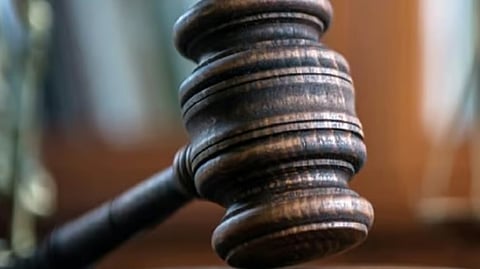

The National Green Tribunal (NGT) January 2, 2025 directed the constitution of a five member fact finding committee to look into the matter of air pollution caused by traditional wood pyre cremation methods in Howrah and Kolkata, West Bengal.
The committee would visit the respective burning ghats and submit its report on affidavit within four weeks with regard to the allegations made in the application. If environmental violations are found, the committee should also suggest remedial measures and action proposed to be taken, the court said.
The applicant had sought directions to be given to the civic body to instal pyre fumes collection system in crematoriums throughout the twin cities of Howrah and Kolkata to control pollution generated by traditional wood pyre cremation methods.
The application also flagged air pollution caused by furnaces of electric cremation incinerators in the two cities, emitting thick black smoke into the air and thereby causing environmental pollution. A list of crematoriums within the jurisdiction of Howrah Municipal Corporation and the Kolkata Municipal Corporation has been provided by the applicant.
It was stated that many of these crematoriums are located within residential areas due to the rampant growth of cities. It was also stated that the traditional wood cremation uses around 300-500 kilogrammes of wood to cremate one body; many a times electric crematorium incinerators are found to be non-functional, as a result of which the relatives of the deceased are forced to use the wood cremation method instead.
The National Environmental Engineering Research Institute has developed the Pyre Fume Collection System and it has already been installed at the Nigam Bodh Ghat in New Delhi, the applicant stated, citing the Press Information Bureau (PIB) website.
Moreover, the Kolkata Municipal Corporation has installed air pollution control device over wood pyres at Sri Sri Ramkrishna Mahashasan Burning Ghat (also known as Cossipore Burning Ghat) in 2012. However on the applicant’s visit on October 30, 2024, the burning ghat was found to be in very poor condition due to lack of maintenance.
The eastern bench of NGT January 2, 2025 directed the constitution of a fact-finding committee to look into the allegations of dumping of debris into rivers Garui and Nunia, Paschim Bardhaman, West Bengal.
NGT directed the constitution of a fact-finding committee composed of district magistrate, Paschim Burdwan; senior scientist, West Bengal Pollution Control Board; senior scientist, Central Pollution Control Board; and senior scientist, State Environment Impact Assessment Authority (SEIAA), West Bengal.
The committee would visit the site in question and submit its report on affidavit within four weeks with regard to the allegations made in the original application. If environmental violations are found, the committee would also suggest remedial measures and action proposed to be taken, the order said.
In addition to dumping of debris into River Nunia, the applicant Ashish Kumar complained about the different construction projects namely Tarang, town house and Sangati.
The above three were being constructed on the land of Asansol Durgapur Development Authority allotted for Shristinagar Township project, measuring around 89.67 acres. It was alleged that these projects do not have any environmental clearance issued by SEIAA. The application stated that the illegal constructions have encroached the long stretch of the passing River Garui and the river has turned into a narrow drain.
River Garui is a tributary of River Nunia, which is a tributary of River Damodar. Both the rivers have been heavily impacted due to various types of industrial and construction activities.
The West Bengal Pollution Control Board and Central Pollution Control Board were directed by NGT January 2, 2025 to examine the allegations of dumping of bio-medical waste mixed with other general waste behind Malbazar Super Facility Hospital, Jalpaiguri, West Bengal.
All the respondents were directed to file their counter affidavits within four weeks. The next hearing of the case is on February 21, 2025.
The applicant, Subhas Datta, in the application said that while on a visit to North Bengal April 11, 2024 he had gone to Malbazar town in Jalpaiguri, where he had observed in the backyard of Malbazar Super Facility Hospital biomedical waste and the other general waste of the hospital dumped together.
Photographs have been filed to show the despicable condition of the waste lying open in the Malbazar Super Facility Hospital.